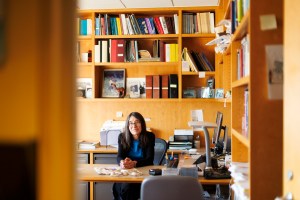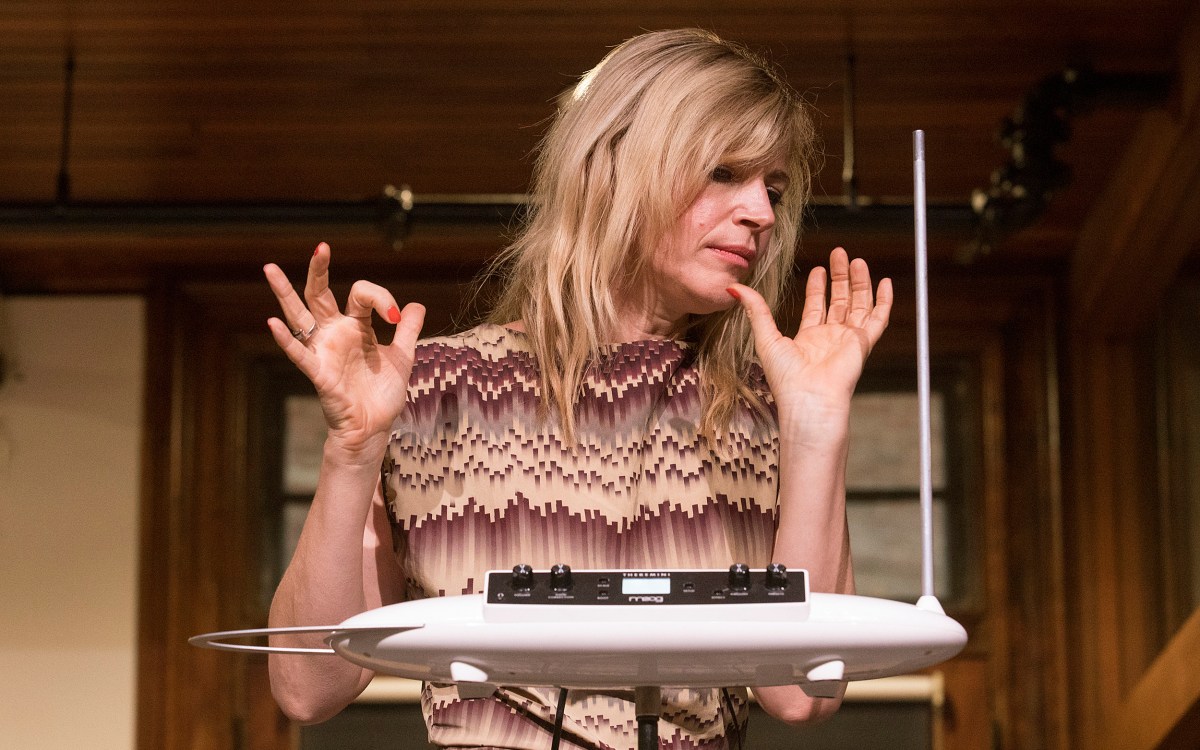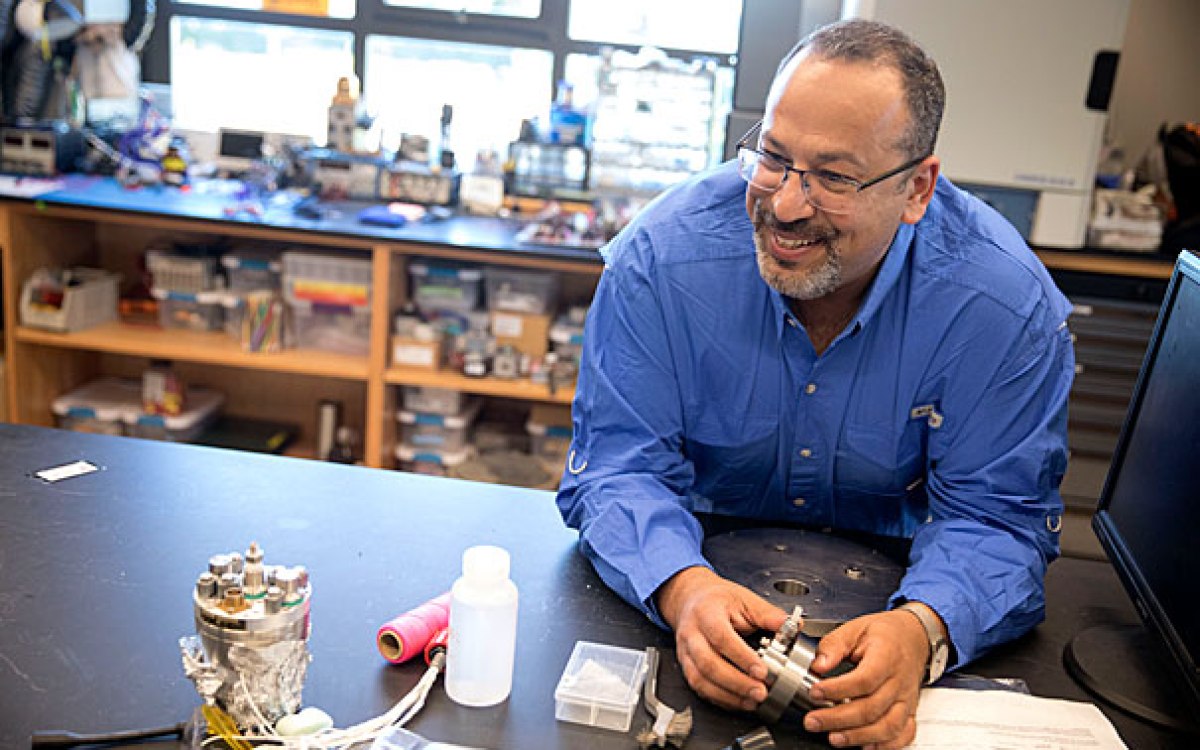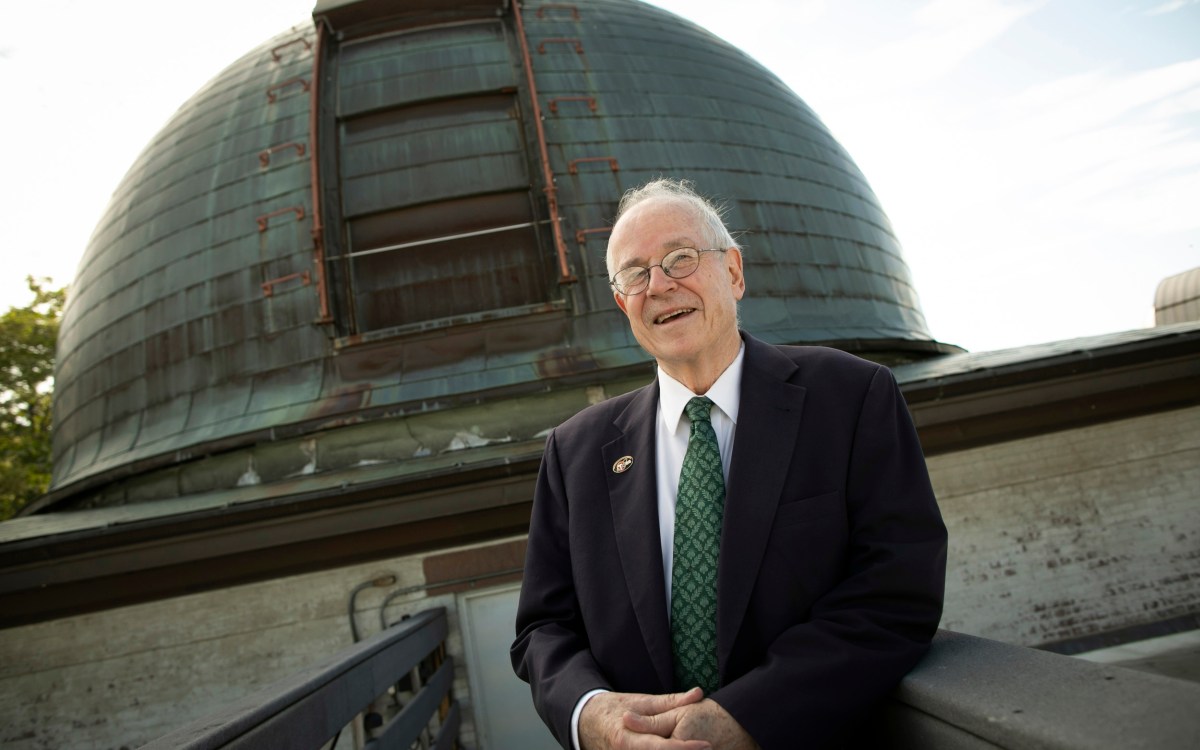Is anybody out there?
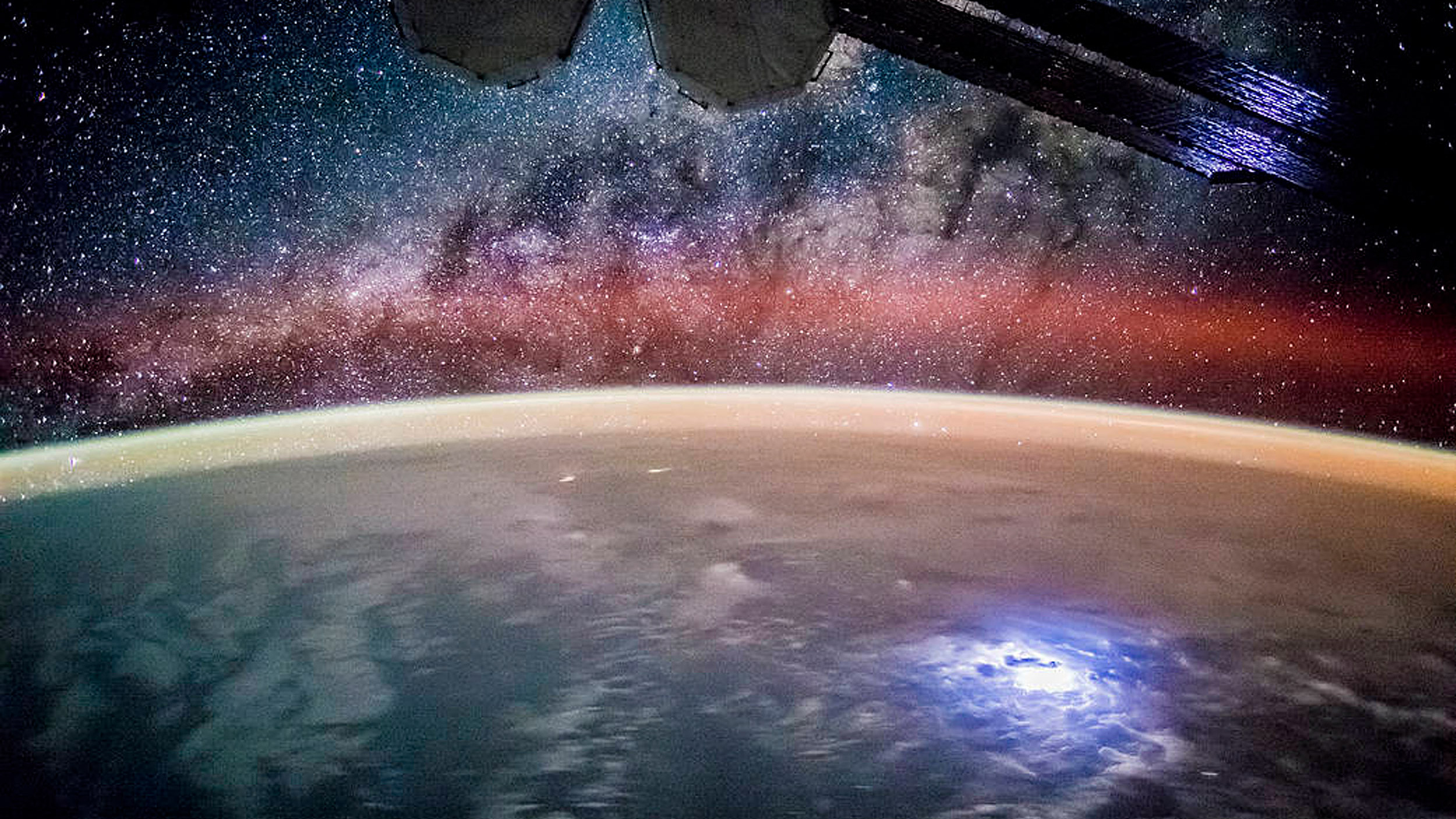
Earth’s night lights seen from the International Space Station.
Photo courtesy of NASA
Astronomer Jill Tarter on the search for intelligent life
The question of whether we’re alone in the universe has haunted humankind for thousands of years, and it’s one astronomer Jill Tarter has tried to answer for much of her life. Tarter, chair emeritus of the Center for SETI Research, worked as a project scientist for NASA’s SETI program, which aimed to detect transmissions from alien intelligence. She currently serves on the board for the Allen Telescope Array, a group of more than 350 telescopes north of San Francisco.
“We are looking for signals at some frequency, some wavelength that don’t look like what Mother Nature produces,” she said in 2014.
Tarter, an inspiration behind the novel and film “Contact,” visited campus last month to participate in the Radcliffe Institute for Advanced Study’s science symposium “The Undiscovered,” which addressed how scientists “explore realities they cannot anticipate.” We spoke with her about her work and why it matters.
Q&A
Jill Tarter
GAZETTE: When did you first start thinking about other worlds?
TARTER: I think it was age 10 or so, walking on the west coast keys of Florida with my father and looking up at the sky. It just always seemed to me that probably walking along the beach on some other world there was some other creature with their father, looking and seeing our sun as a star in their sky.
GAZETTE: When you were a child did you have the sense that looking for intelligent life was something you wanted to do for your career, or that you might become an astronaut?
TARTER: I did apply to be an astronaut, but no, as a profession I stumbled onto it because I knew how to program an obsolete computer called a PDP84, and that piece of equipment was given to Stu Boyer, an astronomy professor who had a very clever idea for how to make use of the University of California, Berkeley, radio telescopes at Hat Creek to do a SETI search in a different way. He came and recruited me because I knew how to program that computer. For me, after millennia of asking priests and philosophers what we should believe, I just thought it was very exciting that right then in the middle of the 20th century we were beginning to have some tools — telescopes and computers — that allowed scientists and engineers to try to figure out what is, and not have to take somebody’s belief system. I thought that was really important and I got hooked.
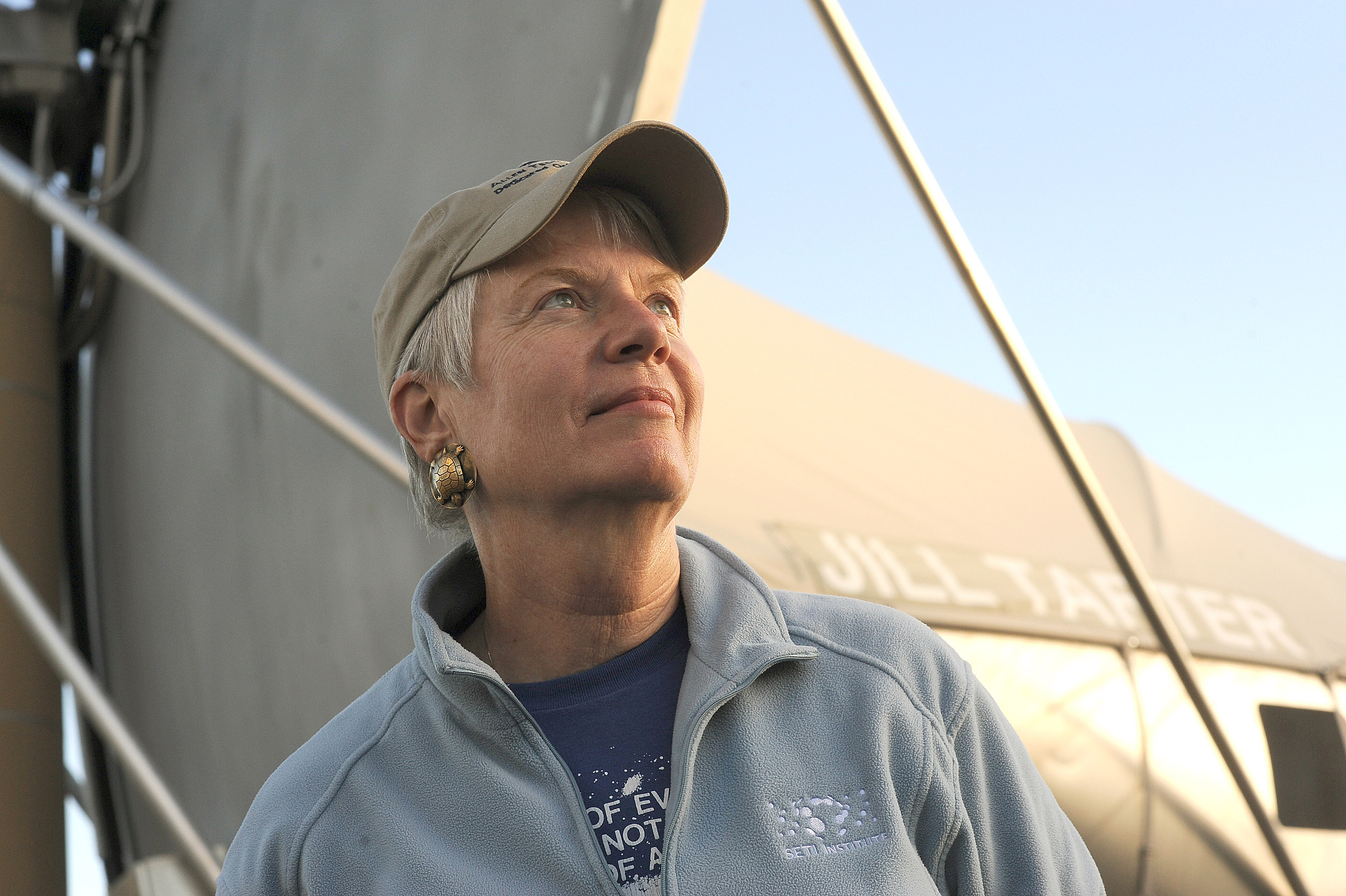
Image courtesy of Jill Tarter
GAZETTE: You’ve spoken a lot about the importance of perspective. What would finding other intelligent life do to our perspective on life in the universe and our own lives?
TARTER: Even not finding it but trying to find it is important because it helps to give people a more cosmic perspective. I usually send people home from a lecture with a homework assignment, which is to go and alter their profiles on all of their social media so that the first thing they say about themselves is that they are an Earthling, because I think that this is the kind of perspective we are going to need to figure out how to solve all these really difficult challenges we have that don’t respect national boundaries. We’ve got to do it in a systemic global way, and I think the first step to getting there is to see ourselves in that context.
GAZETTE: What are the odds are that we might find something?
TARTER: It seems like there’s perhaps an impression that the universe has become more biofriendly in terms of what we think we know. But it doesn’t mean that all that habitable real estate is inhabited. That is the question. We don’t know the answer to that, but I think it’s really exciting that we are developing ways to explore our own solar system and we are developing instruments that can hopefully image some of the worlds around other stars and try to find out whether there’s any biology or technology going on there.
GAZETTE: Do you think that will happen in your lifetime?
TARTER: Well, let’s see. Back in 2004, [genetic scientists] Craig Venter and Daniel Cohen made a very bold prediction. They said whereas the 20th century had been the century of physics, the 21st century was going to be the century of biology. I personally think that wasn’t bold enough. I think the 21st century is going to be the century of biology on Earth and beyond. I think this will be a century when we begin to understand whether or not life has originated within the solar system more than once, and perhaps around other stars.
GAZETTE: You talked about giving your listeners homework. My colleague mentioned to me an app that you could download to your computer that would help search for intelligent life while the machine slept.
TARTER: That’s right. It was called SETI@home and it was developed at UC Berkeley. It’s still going. It processes data that has been recorded at the Arecibo and Green Bank observatories. It runs as a background process on your computer and it really put citizen science and distributed computing on the map when it came out about 12 years ago. It didn’t invent distributed computing — people were already doing that to break codes or factor prime numbers. But it was such a sexy application that everybody grabbed it and it took off and citizen science followed in its footsteps. It’s a very large group of people who classify galaxies, who fold proteins for cancer research, who count craters on various pieces of real estate in the solar system.
GAZETTE: You famously disagreed with Stephen Hawking when he said that he feared the potentially aggressive nature of any intelligent life we might one day encounter.
TARTER: Stephen was a brilliant man, but neither of us has any data on this point other than our own terrestrial history. My point of view is the kind of scenario that’s being posited is that they are going to show up and do us harm. Well, if they can get here, their technology is far more advanced than ours, and I don’t know how you get to be an advanced older technology and have a long history unless you outgrow the aggression that probably helped you to get smart in the first place. So, I think an old technology, if such a thing exists, is going to be stable and it’s going to have gone through the kind of cultural evolution, the kind of social evolution that [Harvard Professor] Steven Pinker talks about. So, from my point of view, if they are coming from an older technology and can get here, they don’t have bad intentions. It doesn’t mean that the interaction will be rosy, because there are often unintended consequences.
GAZETTE: Final question: “Contact” excluded, favorite alien or space movie?
TARTER: Oh, I like “2001: A Space Odyssey.”
Interview was edited for clarity and length.


